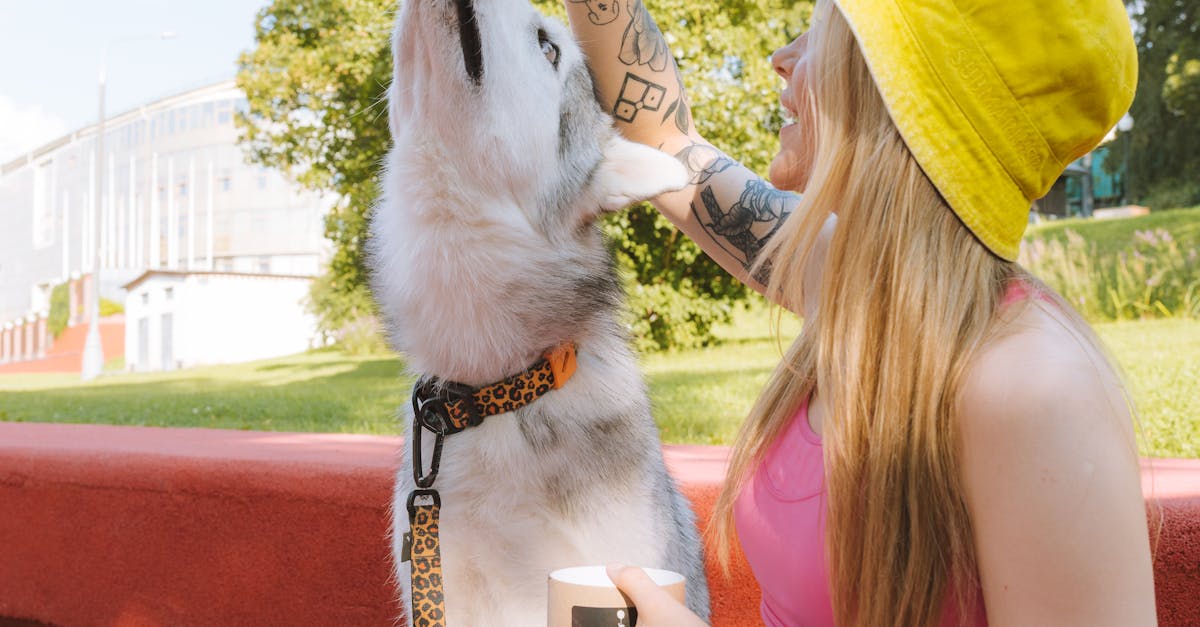
Best Dog Training Collars For Stubborn Dogs
- October 03, 2024
- 4 min Read
- Views 169
Best Dog Training Collars for Stubborn Dogs
Finding the best dog training collars for stubborn dogs can be a challenging task for pet owners. These specialized collars can help improve communication with your furry friend, teach obedience, and deter unwanted behavior in a humane manner. Understanding the different types and choosing the right one can lead to a happier and better-trained pet.
Understanding the Need for Training Collars
Training a dog, especially a stubborn one, can be a daunting task for many pet owners. While consistency, patience, and positive reinforcement are pivotal in dog training, sometimes additional tools like training collars become necessary to ensure behavioral compliance. These collars are designed to grab a dog's attention quickly without causing harm, allowing owners to communicate more effectively.
Types of Dog Training Collars
Electronic Collars
Electronic collars, also known as e-collars or shock collars, can be highly effective for difficult dogs. These collars deliver a mild electrical stimulation to the dog, designed to capture their attention and enforce commands at a distance. Modern e-collars often come equipped with multiple settings, including vibration and sound, allowing for flexibility in training stubborn dogs.
Vibration Collars
Vibration collars provide an alternative to traditional shock collars by using vibrations instead of electric shocks. These are particularly useful for dogs that respond negatively to more intense sensations but still need an effective training device. Vibration collars often come with variable settings to customize the intensity according to your dog's temperament.
Citronella Collars
Citronella collars offer a humane way to deter barking or unwanted behavior by emitting a spray of citronella when triggered. The surprising mist captures the dog's attention without any discomfort, making it suitable for dogs that are resistant to other training methods. However, it may not be effective for all stubborn dogs, particularly those with a high tolerance for distractions.
Choosing the Right Training Collar for Your Dog
Every dog is unique, and the effectiveness of a training collar can vary based on your pet's personality, size, and specific behavioral challenges. Here is a step-by-step guide to aiding your decision:
Guide Steps
- Assess Behavioral Needs: Identify specific behavioral issues that need addressing. Whether it's excessive barking, aggression, or disobedience, clearly understanding the issue will guide collar selection.
- Consider Temperament and Size: Match the collar to your dog's size and temperament. Larger, more powerful dogs may require different settings than smaller breeds.
- Experiment with Settings: Start with the lowest intensity settings and monitor your dog's response. Adjust as necessary, keeping your dog's comfort in mind.
- Seek Humane Options: Prioritize collars offering humane methods such as vibrational or citronella-based stimuli, especially for dogs sensitive to pain or discomfort.
- Consult a Professional: If unsure, consulting with a professional dog trainer can provide insights and recommendations tailored to your dog's needs.
Frequently Asked Questions (FAQ)
Are training collars safe for dogs?
Yes, when used correctly, training collars are safe for dogs. It’s crucial to choose a collar suitable for your dog’s specific needs and to follow the manufacturer’s instructions carefully to avoid unnecessary discomfort.
Can a training collar replace traditional training?
Training collars should be viewed as supplementary tools rather than replacements for traditional training methods. They work best in conjunction with positive reinforcement techniques to achieve the desired results.
How soon will I see results with a training collar?
Results can vary widely depending on the dog’s temperament and the consistency of training. Some pet owners report positive changes within a week, while others may require more time and persistence.
What if my dog doesn't respond to the training collar?
If you notice a lack of response, consider trying different settings or types of training collars. Also, consulting a professional trainer can offer alternative strategies to address your dog’s stubbornness effectively.
Are certain breeds more challenging to train than others?
Yes, certain breeds are known for being more independent or stubborn, making training more challenging. However, with the right techniques and tools, including effective training collars, any dog can learn new behaviors.
Conclusion
Training stubborn dogs can be made easier with the right tools. The best dog training collars for stubborn dogs take into account the individual needs and characteristics of the dog, thereby ensuring a safe and effective training experience. Research and trial are key in finding the perfect match for your companion. Remember, patience and consistency are just as important as the tools you choose.
References
People Also View
-
1October 03, 2024
-
2October 13, 2024
-
3September 30, 2024
-
4October 03, 2024
-
5October 03, 2024
Categories
- Near Me 2147 Posts
- How To 548 Posts
- Where To 257 Posts
- Why 90 Posts
- How Much 97 Posts
- Travel 202 Posts
- Food And Drink 815 Posts
- Shopping 797 Posts
- Lifestyle 1050 Posts
- Automotive 364 Posts
- Digital Income 70 Posts








